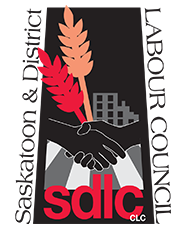Reconciliation carries a unique and personal meaning to each of us. It invites us to reimagine our relationships to our past, our home, and to each other. It represents growth, transformation, and our collective journey toward understanding and healing.
The National Day for Truth and Reconciliation – Orange Shirt Day – reminds us why this journey is so essential. Orange Shirt Day commemorates the experience of a young girl, Phyllis Webstad, who wore her brand new orange shirt with excitement on her first day of residential school. That shirt, a symbol of her individuality and joy, was stripped away from her, leaving behind feelings of shame and worthlessness. This day is a reminder of the impact of residential schools on Indigenous children and their families—a reality many continue to heal from. It's a time for all of us to reflect, listen, and understand the profound losses experienced by so many.
For many, this day is an opportunity to share their stories. It is a day of acknowledgment and a commitment to ensuring that every child matters. As we mark this day, let us come together in solidarity, with open hearts and minds, to honour those who were impacted by the residential school system. Let’s commit to actively participating in the journey toward reconciliation and moving toward a society where every individual is valued and respected.
In 2015, the Truth and Reconciliation Commission of Canada set forth 94 Calls to Action. Each of these calls represents a step toward acknowledging the past and committing to a future that honours the truth and supports meaningful change.
In the spirit of reimagining, let us commit to answering these calls in our work and in our daily lives. Let us embrace the possibility of a future where truth leads to understanding, and reconciliation paves the way for healing and growth. Let us all work toward a world where every voice is heard, every story is acknowledged, and every step forward brings us closer to the unity and respect that is at the heart of reconciliation.
In solidarity,
Hali Topinka
Indigenous Vice-President





